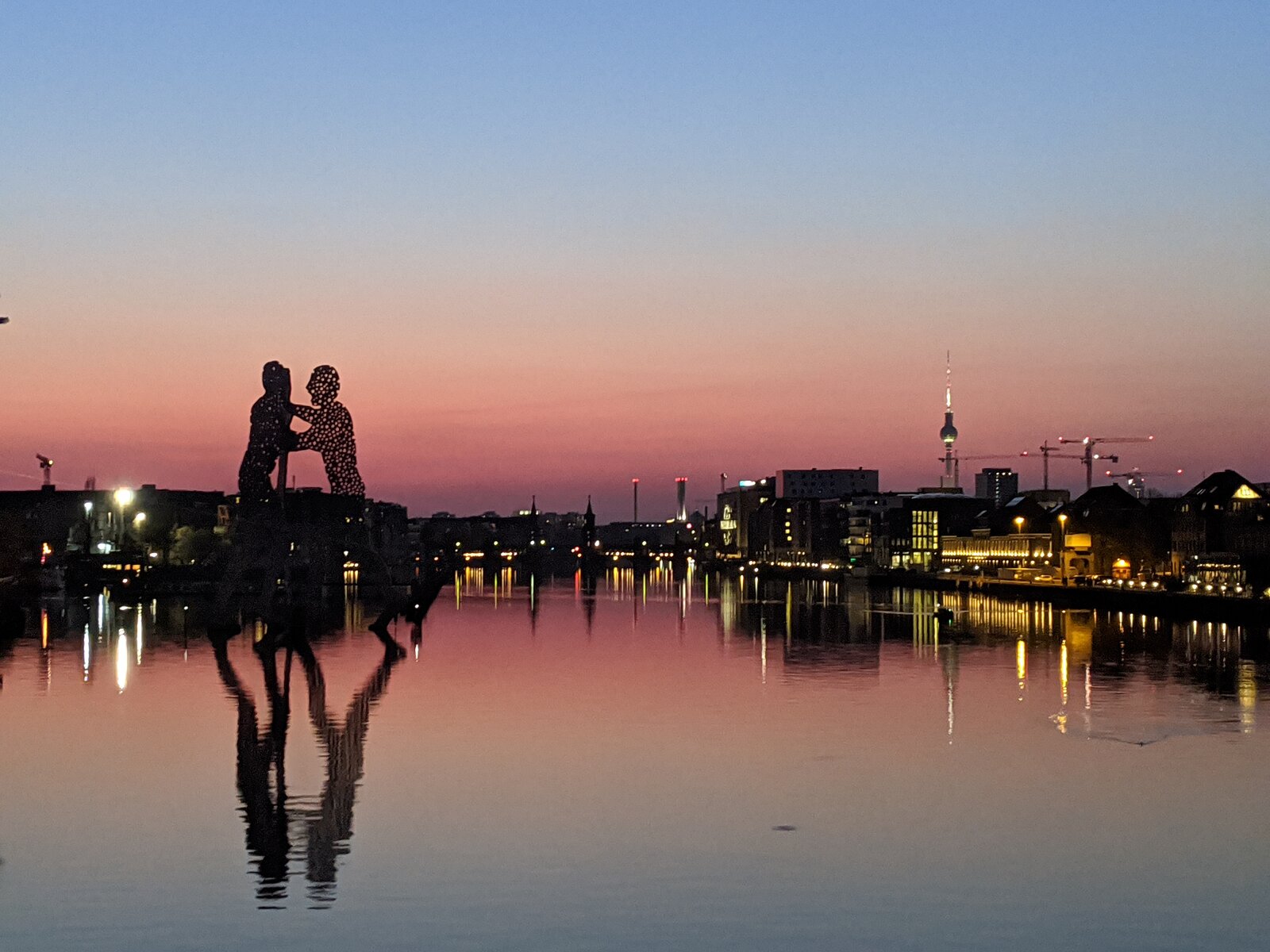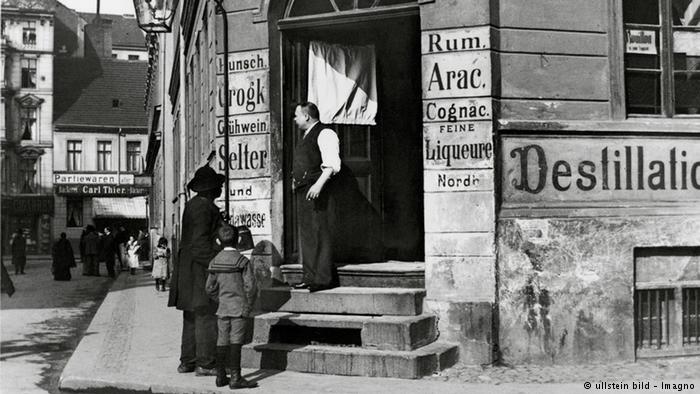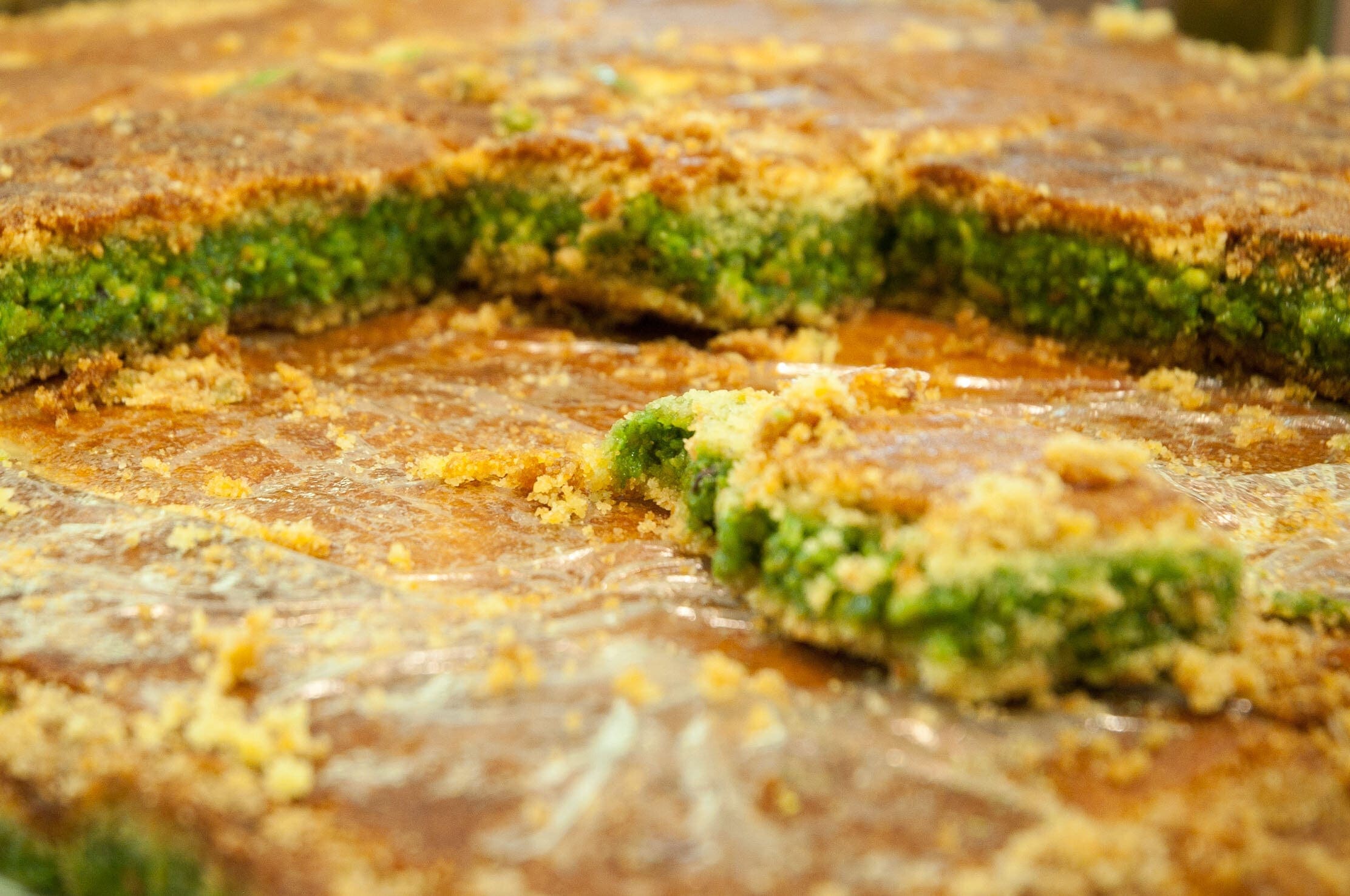Yes we can! Keeping Berlin's small businesses alive
Anne Thomas goes on a tour of Berlin's human and environment-friendly delivery services.

When Berlin started taking COVID-19 seriously just over a month ago, cafe and restaurant owners were faced with the difficult dilemma of what to do. If they shut down, their livelihoods would be on the line. If they stayed open, they would be putting themselves and their customers at risk. A terrible choice.
Fortunately, a network of solidarity has developed thanks in large part to digital communication tools that are ensuring that this global pandemic is different from those of the past because we are at least able to stay in touch with our loved ones despite national lockdowns and the closure of borders.
With the help of these tools, many small businesses are surviving and keeping Berliners supplied with quality produce.
This post proposes a very non-exhaustive tour.
Before setting off, I would like to point out that I am very aware of the privileged position from which I write. Compared to my relatives and friends in other countries and more precisely, Britain, France and Italy, I can go out for a long bike ride, meet friends, sit on a park bench. Yesterday, I even drank a Radler on the grass. So natural in "normal times", so intrepid in "times of corona".
In contrast to many on this planet, I am able to continue working and draw a salary from the safety of my own home. I do not risk my life to serve/support/save others. I am not an "essential worker".
I am glad that through my work for an international news organisation I can help to provide balanced information about what is happening around the world and keep my own experience in perspective.
Already the victims of discrimination, Roma communities in Central Europe are currently undergoing terrible times. Refugees and asylum seekers in crowded accommodation centres in Germany are being unnecessarily exposed to the virus. Many of them are already traumatised; strict lockdown measures do not help, especially when they are imposed without warning. There has been a rise in domestic violence all over the world. Arundhati Roy has written a devastating article about how the virus has exacerbated unequal conditions in India. Unfortunately, I could go on.
I don't think that feeling guilty about suffering less than others helps. It is more productive to raise awareness and offer support to individuals and organisations that are doing their best to improve a world whose inequalities this pandemic has exposed in such a brutal way.
“There is a lot of talk about returning to ‘normal’ after the COVID-19 outbreak," Greta Thunberg has tweeted. "But normal was a crisis.”

We cannot go back to "normal". We must take this crisis as the final wake-up call.
It seems as if nature is also nudging us to do this. When was spring ever so gorgeous? The sky so clear? The moon so bright? The city air so filled with birdsong?
The cherry trees donated by Japanese citizens to celebrate German Unification are all in blossom along the former Wall; they look so much better than barbed wire. They are a symbol of solidarity, of hope; they remind us that there will come a time when it will once again be "normal" to drink beer with friends in the open air.
Talking of which, one of my favourite places usually to grab a pint on a warm day is Lager Lager. The staff are relaxed and friendly, you can taste various local brews or pale ales from further afield, drinking them on the spot or taking them with you to the nearby canal. These days, you can still pick up or have beer delivered to your doorstep.
Since I feel so grateful to have a job and want to support the small businesses that make this city so special, I have been getting a bit carried away in my ordering for home delivery. I now have enough beer to throw a party every Saturday till the end of summer! (Till the end of time if the lockdown is extended).
I also got a bit too excited when I saw that there were salt and vinegar* crisps for sale; these remind me so much of Britain, of "home". Judging by the catastrophic and tragic management of the coronacrisis across the Channel, god only knows when I'll be going back for a visit. In the meantime, I have a lifetime's supply of "British hand cooked potato chips made in Devon". When I was last in Brexitland, in February - an age ago - I was upset by the omnipresent use of "British" to sell ordinary products. As it happens, I was in Devon. No doubt about it, the coast is beautiful, the scones are divine (and these crisps taste great), but I couldn't help sizing up every local and wondering if he or she had voted for Brexit, for Boris Johnson. Just thinking about it made my blood boil and the clotted cream curdle!
*By the way, a recent podcast delves into the sinister meaning behind the flavours of crisps and the colour of the packets, implicating the Tories and the Illuminati but coming to a sane conclusion. It's an entertaining listen and makes a change from the current coronavirus conspiracy theories!
My anger then seems mild now and has since grown exponentially. As hospitals overflow and health staff complain of not having adequate equipment, and people die alone with their relatives unable to attend funerals, I seethe - through tears - at the arrogance and recklessness of many in power today.
"We are a society of altruists, but we are governed by psychopaths," said George Monbiot some time last year.
COVID-19 has made this clearer than ever.
It's only 11 a.m., but perhaps I should crack open one of those beers to calm my nerves?!
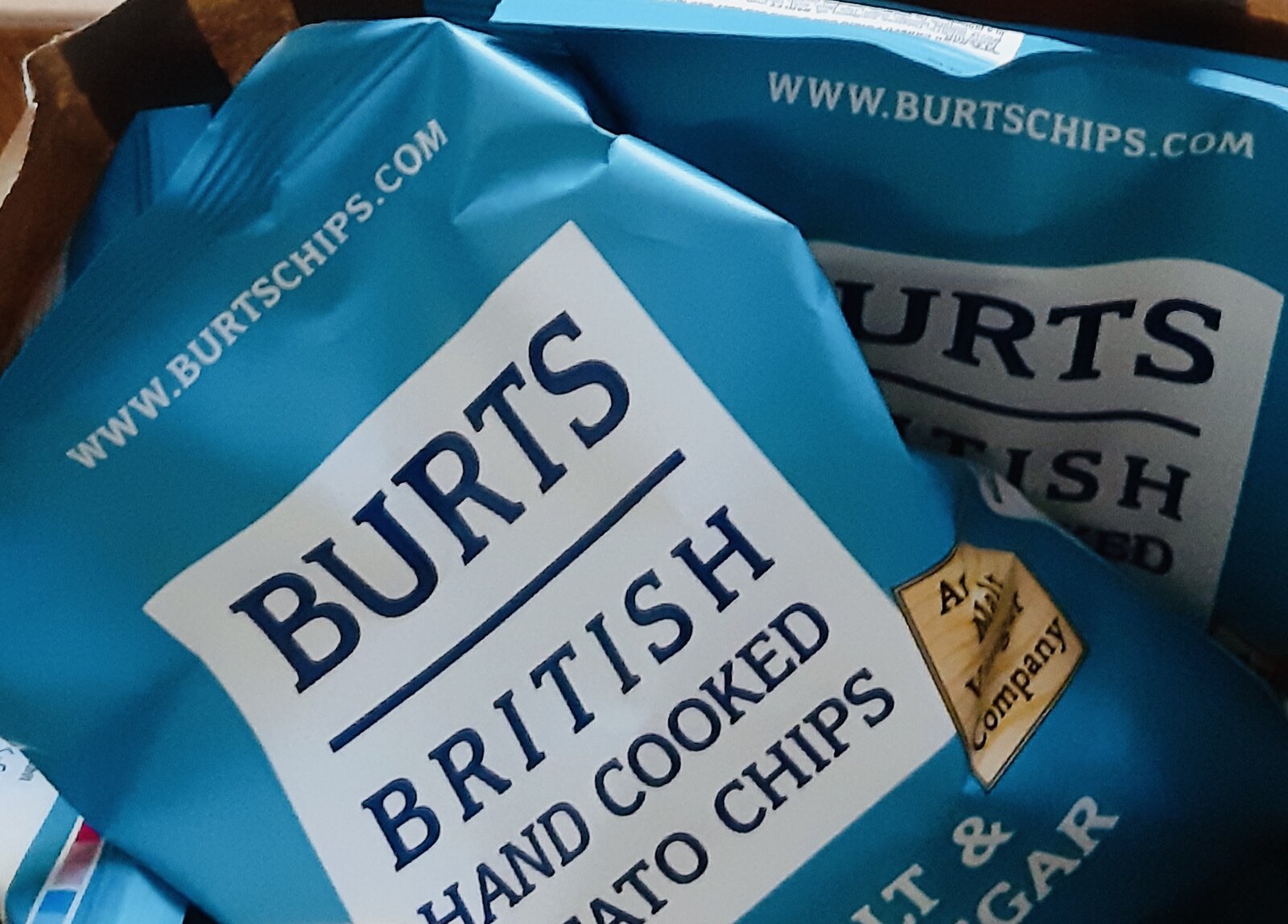
Apart from the crisps, top-notch beer and select bottles of wine, another reason to order from Lager Lager is that they are supporting the charity Berliner Obdachlosenhilfe, which is providing food and essential services to the local homeless population, one of the most vulnerable groups in the city at any time but particularly at the moment. If you don't drink, but still want to help you can go straight to the charity's website.
Food blogger Mary Scherpe from Stil in Berlin has also compiled a very useful list of local and international initiatives to support with instructions on how.
Lager Lager happens to be one local companies featured Blutop's "marketplace of friendly goods", a start-up run by Manolo and Olivia, a self-described Chilean New Yorker, who told me at a distance of two metres that they had decided to set up the company to help friends who are mainly artists or in the food sector and currently out of a job. Blutop delivers fresh produce, spring flowers, homemade soap and now protective masks from their favourite small businesses to people who are unable or reluctant to go out too often or, like me, are just becoming damned lazy!
"Safe, local, good" is their motto. So different from that other infamous global delivery service which is doing its best to wreck small business once and for all. Don't take my word for it, read this New Yorker article from last year or this newer Guardian one. If they don't convince you, then just watch John Oliver, who - as always - nails it!
At Blutop's marketplace, you will not find everything. You will not find the cheapest prices either. But cheap prices usually mean cheap conditions.
You will find high-quality, beautifully-presented products that will bring a smile to your face and your stomach.
You can opt between "Essentials", "A Little More" and "That Should Be Enough".
There is a prime selection from Peppikäse, a local Neukölln dealer that sells raw milk cheese made by small producers in mainly Switzerland and Austria, as well as trusty standards such as parmigiano or comte.
At a time of mass-produced food, responsible for many of our age's ills and possibly even for COVID-19 as this article suggests, there is a strong case for supporting small-scale agriculture.
Tempted by everything in the marketplace, I placed an order for tulips, Spanish wine, honey, olive oil and yoghurt from Greece, courtesy of Teesaloniki, a favourite of mine in "normal" times because it is an oasis of calm and you can get almond butter to die for and mountain tea, which is apparently good for warding off Alzheimer's and viruses such as the common cold! No research has yet been conducted into coronavirus, but I'm keeping my fingers crossed that my immune system is suitably prepared!
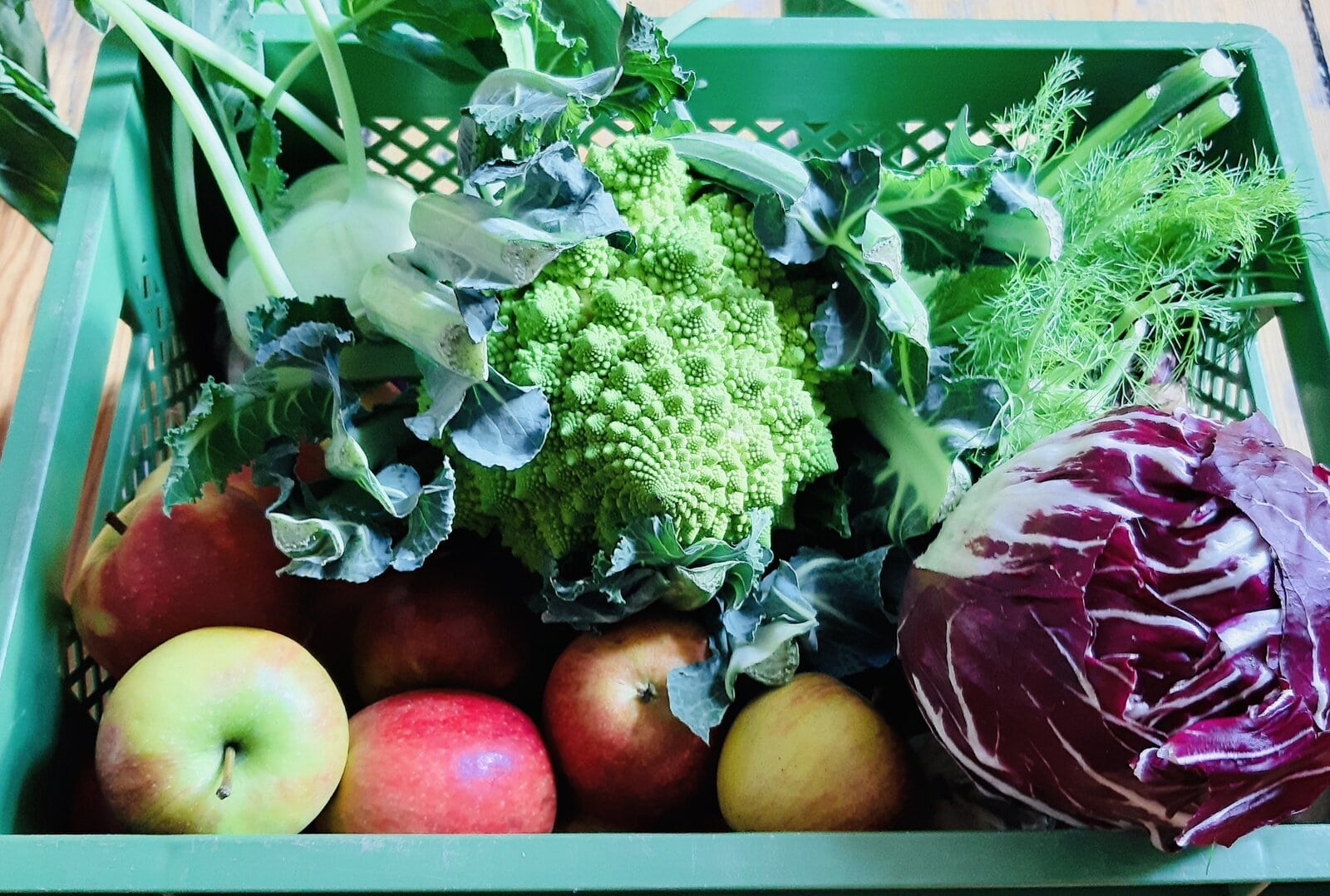
I also ordered a mixed box of fruit and vegetables supplied by Querfeld, a wholesaler that sells organic produce which didn't make the shelves for aesthetic reasons!
I landed a curved cucumber (Brexiters would have rejoiced!), some misshapen avocadoes, a dozen Jerusalem artichokes, crunchy apples, oranges, fennel, kohlrabi, radicchio and some unknown root vegetable that turned out to be black radish. A wonderful spring harvest that has been transformed into plentiful salads, risottos and pasta dishes.
Pasta? When this popular staple nigh on disappeared from the shelves of Germany's supermarkets, I turned to Amore in despair ("mamma mia, come fare senza pasta?")! This little shop in Sanderstrasse, which is my go-to for burrata, ricotta salata, capers and other delicious foodstuffs, came to the rescue. When lockdown loomed, I stocked up on pasta and enough tins of tomatoes to keep a Roman family in penne all'arrabbiata for a year. I was less worried about going hungry than seeing this little corner of Italy in Berlin disappear. It all came delivered by bike and mask.
Just as an Italian meal ends with an espresso, so I will round off this post with coffee. As in "normal" times in Berlin, there's almost too much choice! If you're daring enough to venture out onto Sonnenallee, where some of my neighbours are struggling to understand the concept of physical-distancing, you can still get a perfect cappuccino at Espera, which is doing takeaway, or a tasty batch brew from Camon.
Around the corner, you'll find a lovely espresso, as well as cakes and sandwiches, at Two and Two, which is open for takeaway.
Not far away, Bichou is selling takeaway espresso drinks too, as well as soup, salad and quiche; you can also pick up some home-made granola, kombucha or wild garlic pesto.
By the way, have you been to Treptower Park recently? I'd never noticed the pungent abundance of wild garlic there before, but it's amazing how different a city smells when cars and factories are under lockdown!
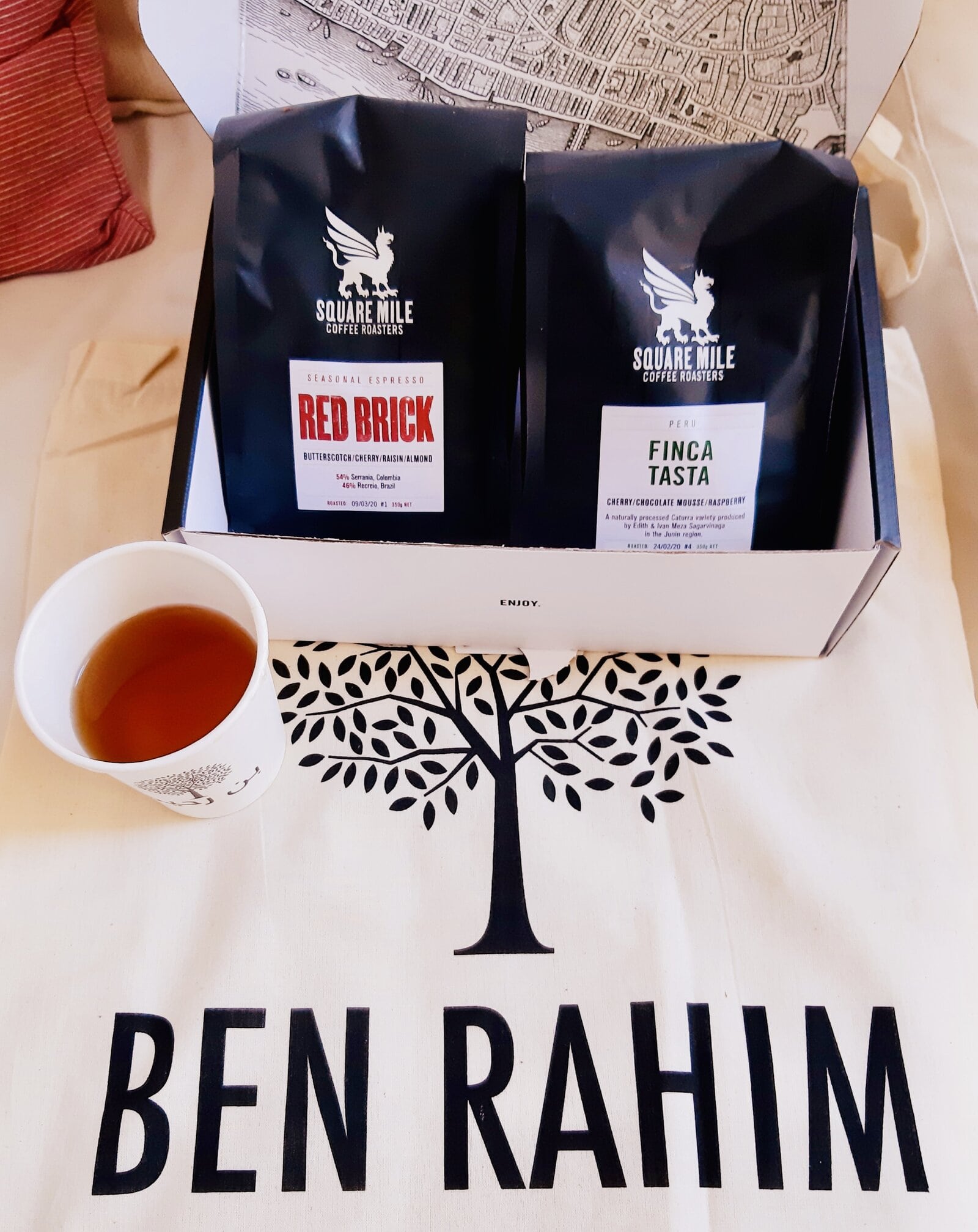
Of course, it might still be simplest to brew your own coffee at home, so long as you have beans (and keep them away from that wild garlic!).
Worried I would run out, I opted for Ben Rahim, ordering a batch from London's Square Mile to keep me through the first weeks of lockdown. As I write, I'm sipping on a cup of Finca Tasta from Peru. Find out more about the woman who produces it here. Ben Rahim in person delivered the beans, with a cup of mint tea to brighten my day. His cafe is a lovely little place for a coffee and espresso brownie before catching a film at the Hackesche Höfe or after stocking up on French literature at Zadig. (Spoiler alert: My next post will sing the praises of English-language books and Fine Bagels from Shakespeare and Sons. I highly recommend their babka too!)
But I digress. Ben Rahim cannot disappear. Nor can Isla Coffee, a tasty zero-waste cafe, which has re-opened for takeaway and is keeping quarantined caffeine freaks supplied via Apocalypse Delivery. This new service, which is not dissimilar to Blutop and shares a similar philosophy, will bring your beans whole or ground exactly as you need them, as well as croissants or bread from Albatross (which supplies some of Berlin's best restaurants and cafes in "normal" times) if you're hungry and fantastic cheese from Markthalle 9's Alte Milch besides.
If you're neither thirsty nor hungry now, then why not buy a voucher for the future? Many of your favourite places might already be featured at Helfen Berlin. If not, you can nominate them. Everything that makes Berlin the city we want to live in is at stake right now, not only bars, cafes and restaurants but also bookshops, cinemas, clubs, theatres. All of them need help.
Yotam Ottolenghi has written an article about the precarious position restaurants are in Britain but this goes for the whole industry worldwide.
As individuals, we can change the world together. We can change our behaviour, prioritise and cut down on consumption. We can boycott corporations which exploit workers and contribute to environmental destruction. We can support businesses which treat staff like human beings and promote biodiversity. We can hold politicians accountable and vote them out!
Yes we can! And yes we must, as this poem underlines so well.
After all, as the joke currently circulating goes, "whoever said one person can't change the world, never ate an undercooked bat."
